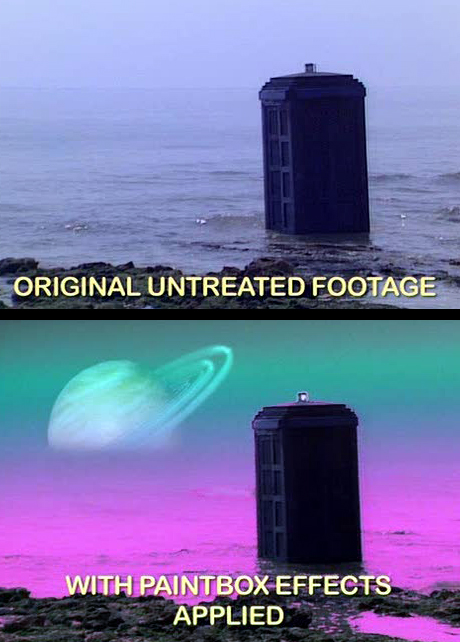Transmat:Doctor Who
The Caves of Androzani was the final televised story to feature Peter Davison as the Fifth Doctor, who had decided to end his tenure on Doctor Who at a three-year milestone after taking advice from former lead Patrick Troughton. As such, it depicted the regeneration of the Fifth Doctor into the Sixth Doctor, played by incoming actor Colin Baker. The story is often cited with high regard for its dramatic elements, unusually action-heavy plot, and the dynamic style of its scenes, which were directed by Graeme Harper in his first credited instance as episode director, which broke free from the less engaged atmosphere of other classic stories. The Caves of Androzani is famous for topping a Doctor Who Magazine poll in 2009 that asked readers to vote for, the single best televised story at the time. Dubiously enough, the story that came directly after this one, TV: The Twin Dilemma, crashed to the bottom of the list as the lowest-regarded of all stories ever televised at the time.
Think Doctor Who is just for boys? Don't you believe it. Not only was the show's very first producer a woman, but it would never have come back without the fierce advocacy of Jane Tranter and Julie Gardner. Considering her importance to Doctor Who it's somewhat ironic that Tranter's only on-screen credits are for Torchwood: Miracle Day. But Gardner, her "partner in crime", is tied only with Russell T Davies as the most prolific producer in Doctor Who history.
The careers of the Fifth, Sixth, Seventh and Eighth Doctors are significantly longer in audio than on television. Check out their latest works at category:2024 audio stories
Officially, only The Lodger has been explicitly adapted from a comic strip — also called The Lodger.
However, several stories have clearly taken material from comic strips — often those in Doctor Who Magazine. The Shakespeare Code contains a good amount of material from A Groatsworth of Wit, and the notion of the Doctor absorbing the time vortex in order to spare a companion was explored in both The Parting of the Ways and The Flood.
Donald Baverstock was the BBC executive who set the the wheels in motion that eventually led to the creation of Doctor Who. Essentially the original commissioner of the programme, he hired Sydney Newman and later imposed a sense of financial responsibility upon producer Verity Lambert.
But Baverstock wasn't the only BBC executive to have a profound impact on the development of Doctor Who. Make sure you read about Lorraine Heggessey, Mark Thompson, Danny Cohen, George Entwistle, Tony Hall, Shaun Sutton, Sydney Newman and others.- 1973 - Part four of the TV Comic story Nova was published.
- 1979 - Part two of The Creature from the Pit premiered on BBC1.
- 1981 - "The Cave of Skulls" was repeated on BBC2.
- 1986 - Revenge of the Cybermen was released on VHS.
- 1994 - The Seventies was published by Doctor Who Books.
- 1997
- Ghost Devices was published by Virgin Books.
- The VHS box set The E-Space Trilogy was released.
- 2003
- Exile was released by Big Finish Productions.[1]
- Deadly Reunion was published by BBC Books.
- Marco Polo was released by BBC Audio.
- 2008
- Part one of The Mark of the Berserker premiered on CBBC.
- Doctor Who: The Complete Fourth Series was released on Region 2 DVD.
- 2010 - DWDVDF 48 was published by GE Fabbri Ltd.
- 2011
- Aladdin Time was released by AudioGO.
- DWA 242 was published by BBC Magazines.
- DWI 8 was published by Panini UK.
- 2015 - The Doctor Who Level Pack for LEGO Dimensions was released.
- 2016
- The Third Doctor Adventures: Volume 2 was released by Big Finish.
- The CD re-release of Tales from the TARDIS: Volume One was released by BBC Audio.
- DWFC 84 was published by Eaglemoss Collections.
- 2021 - Timejacked! was released by Big Finish.
- 2022
- Tenth Doctor Novels Volume 5 and the audiobook of The Power of the Daleks were released by BBC Audio.
- A special illustrated hardback edition of Doctor Who and the Daleks was published by BBC Books.
{{#ifeq:2,011
- ↑ Exile is (Almost) Here.... Big Finish, via Internet Archive. Retrieved on 14 December 2003.
- ↑ Doctor Who Guide
- ↑ People Pill
- ↑ The Guardian



